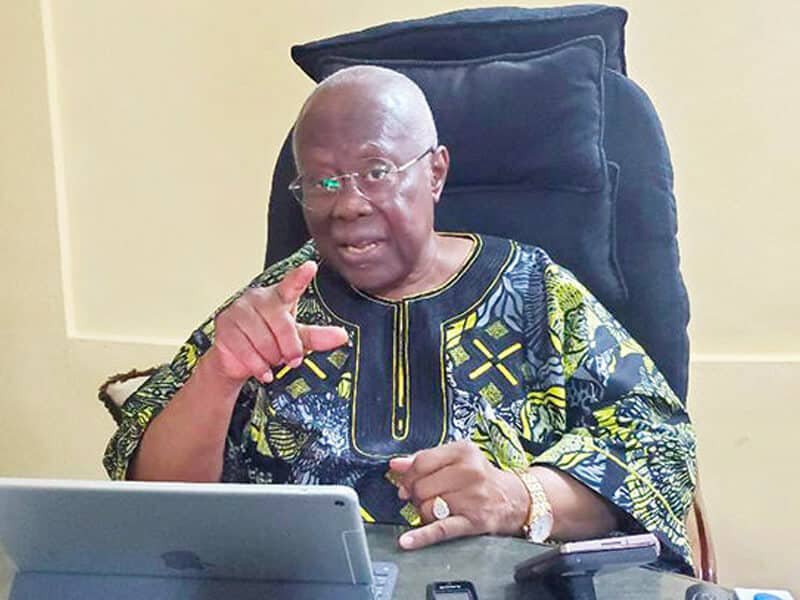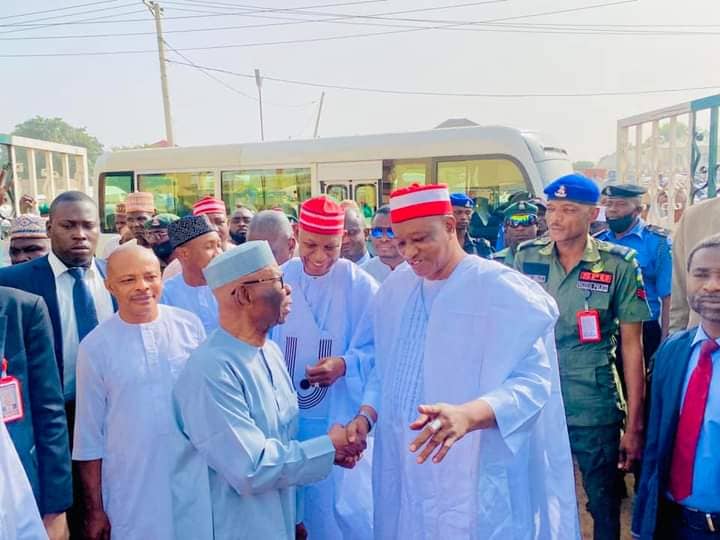Nigeria has demanded strengthened governance, transparency, and collaboration from leaders and industry players to harness Africa’s resource wealth for sustainable development.
The Nigerian government also reaffirmed its commitment to creating an inclusive extractive industry anchored on transparency, regional partnerships, and local capacity building.
According to a statement by his spokesman, Stanley Nkwocha, Vice President Kashim Shettima stated the nation’s position on Wednesday during the inaugural International Exhibition of Extractive and Energy Resources (Salon International des Ressources Extractives et Energétiques – SIREXE) in Abidjan, Côte d’Ivoire.
He noted that effective institutions are the cornerstone of turning natural resources into national prosperity.
The summit, which had the theme “Policies and Strategies for the Sustainable Development of the Extractive and Energy Industries,” brought together leaders from across Africa to discuss innovative solutions for resource management and energy security.
The Vice President said, “This is not just about resources; it’s about people, prosperity, and posterity.
“The strength of our governance institutions will determine whether resource wealth becomes a blessing or a curse. With the right policies, transparency, and accountability, we can ensure that our mineral wealth fuels development rather than division,” he pointed out.
Vice President Shettima noted Nigeria’s leadership in transparency reforms by creating the Nigeria Extractive Industries Transparency Initiative (NEITI) in 2004.
“We became the first country in the world to domesticate the Extractive Industries Transparency Initiative because we understood that opacity breeds inefficiency and corruption. Transparency is non-negotiable for building trust and ensuring inclusive benefits for all”.
Senator Shettima also stressed the importance of regional cooperation in addressing shared challenges, saying, “Africa’s energy future is intertwined. The progress of one state ripples across others. Nigeria stands ready to share its lessons and collaborate with ECOWAS partners to build an extractive industry that works for our people.”
The VP described how restructuring the Nigerian National Petroleum Corporation (NNPC) under the Petroleum Industry Act (PIA) 2021 into a commercially oriented entity has transformed the sector.
“NNPC Limited now operates with agility, transparency, and reduced government interference. This shift is setting a new standard for resource governance in Africa,” he explained.
The Vice President reiterated the critical role of local content development in driving economic growth, noting: “Through our Local Content Act of 2010, we increased local participation in the oil and gas industry from 5% to nearly 30%.
“The success of projects like the Dangote Refinery, the world’s largest single-train refinery, showcases what is possible when we prioritise indigenous capacity and innovation.”
Acknowledging the challenges posed by vested interests and conflicts in resource-rich regions, Shettima said, “We cannot afford to allow cartels and instability to jeopardise our aspirations. That’s why Nigeria invests in specialised policing frameworks to secure mining sites and ensure sustainable growth.
“Our continent is home to 40% of the world’s gold, 10% of its oil, and critical minerals like cobalt and lithium. Yet, our potential remains untapped. Let us rise to this moment, not as isolated nations but as a unified region,” he added.
In his remarks, the Vice President of Côte d’Ivoire, Mr Tremoko Meyliet Kone, expressed his appreciation for Vice President Shettima’s and others’ visits to the event from different countries.
He highlighted the benefits of collaboration among countries and stakeholders in the energy and extractive industries, including cross-breeding of ideas, job creation, and more excellent maximisation of natural resources for the well-being of citizens.
While cautioning against pollution, climate degradation, and associated factors, especially in the mining sector, he said Côte d’Ivoire is doing its best to reduce environmental pollution emissions.
In his welcoming remarks, the Minister of Mines, Petroleum, and Energy, Mr Mamadou Sangafowa Coulibaly, extended appreciation to VP Shettima, said the Vice President was the guest of honour at the event, and thanked all participants at the conference.
He says, “There is a need for collaboration and partnership in the sector to meet the global energy needs of people and for the economic development of nations.”
Mr Coulibaly said the participation of other countries and stakeholders in this conference’s first edition is a sign of cooperation and collaboration to improve the sector globally.
He said the conference had provided participants with an avenue to interact and propose solutions to the challenges and risks involved and how best they can serve the people.
Earlier, the Ambassador of Norway to Côte d’Ivoire, Her Excellency Madam Ingrid Mollestad, said, “The conference was a testament to the nation’s ambition and dedication to enhancing its position as a champion in this industry and to navigate the intricacies and the changing global landscape.”
She noted that the gathering’s purpose is to partner as nations and professionals to investigate sustainable development in the industry that is essential to the global economy and to foster collaboration, innovation, and shared values.

 2 hours ago
1
2 hours ago
1















 English (US) ·
English (US) ·